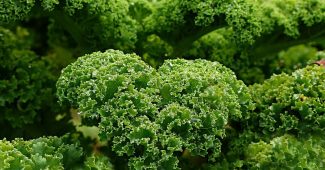While veggies may not be as delicious as steak or pasta, they offer many health benefits. All vegetables are nutrient-dense, but some are particularly effective if you have plans to follow a proper diet for weight loss. Certain vegetables are low in calories and high in fiber and water content, making them a crucial component of weight loss. Additionally, it helps regulate blood sugar and insulin levels, preventing fat accumulation.
Here are the top 10 healthiest vegetables you should make part of your diet to lose weight and stay fit.
10Cabbage
It also reduces appetite, promoting feelings of fullness and reducing the likelihood of overeating. The fiber in cabbage can help with constipation and promote healthy metabolism, aiding in weight loss. As an excellent anti-inflammatory agent, the amino acid glutamine in cabbage prevents inflammation and promotes weight loss. Finally, its low-fat content also makes cabbage ideal for losing weight.
9Bell Pepper
Additionally, the compound capsaicin found in bell peppers can help increase fat-burning and suppress appetite, aiding in weight loss. A recent study published in the American Journal of Clinical Nutrition states that consuming 6 mg of capsaicin daily improves men’s and women’s abdominal fat loss.
Top 10 Healthiest Vegetables you Must Eat
8Broccoli
The dietary fiber in broccoli absorbs water and keeps you feeling fuller for longer, reducing your appetite and preventing mid-meal snacking. Vitamin K in broccoli is beneficial for glucose and fat metabolism, and it is especially helpful in burning belly fat. Carotenoids, a natural plant compound found in broccoli, stimulate fat burning and reduce weight.
7Spaghetti Squash
Since it’s high in fiber, it can help regulate your digestive system and ease issues like constipation, diverticulitis, and hemorrhoids. Additionally, the fiber can slow down the rate at which your stomach empties, helping to keep blood sugar levels stable and reducing feelings of hunger and cravings.
6Kale
Either raw or cooked, eating these vegetables is highly beneficial for weight loss. Each cup of raw kale contains approximately 2.4 grams of dietary fiber, which helps reduce hunger and aids in weight control. Also, kale’s high water content increases urination and helps your body flush out excess water weight.
5Zucchini
Despite being low in calories and fat, zucchini is high in fiber and water content, which can help keep you feeling full and prevent overeating. You can successfully manage your weight or even lose weight by substituting higher-calorie foods with zucchini, like refined carbs or empty-calorie snacks.
4Green Peas
The vegetarian protein in green peas also contributes to weight loss. Additionally, they support constipation relief by promoting the healthy functioning of the gut. Also, one cup of cooked peas contains less than 0.5 grams of fat, which is highly effective for weight loss.
3Brussels Sprouts
Brussels sprouts are a healthy and unique vegetable. They belong to the cruciferous family and look like miniature cabbages. Despite being low in calories and fat, they contribute essential protein, nutrients, vitamins like K and C, and fiber. This dietary fiber promotes digestive regularity and helps alleviate constipation while reducing the risk of digestive health issues.
Dietitians recommend eating cooked Brussels sprouts to maximize their benefits, as they are easier to digest than raw ones. You can easily add them to your diet as a healthy addition to side dishes and entrees. Moreover, they are rich in protein, calcium, and potassium with zero saturated fat, making them a great choice for healthy weight loss.
2Cauliflower
Just one cup of cauliflower can provide 10% of your daily fiber needs. So, incorporating cauliflower into your regular diet can lower the risk of illnesses like heart disease and diabetes while promoting digestion and cardiac health. Also, it helps slow digestion and keeps you feeling full for longer. Since 92% of the weight is water, eating cauliflower enables you to hydrate and helps with weight loss.
Related Articles
1Spinach
With only 23 calories per 100 grams, spinach can limit calorie intake without sacrificing nutrition. The iron content in spinach can increase the body’s calorie-burning rate and promote weight loss to keep the body fit. Additionally, a compound in spinach called thylakoids can suppress appetite and reduce the hunger-inducing hormone ghrelin, preventing insulin spikes and discouraging fat storage, leading to weight loss.




